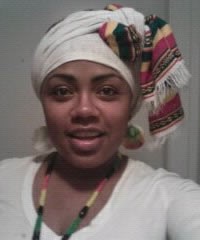Afro-Nicaraguan in Nicaragua

Photo Source:
Anonymous
|
Send Joshua Project a map of this people group.
|
| People Name: | Afro-Nicaraguan |
| Country: | Nicaragua |
| 10/40 Window: | No |
| Population: | 292,000 |
| World Population: | 292,000 |
| Primary Language: | Spanish |
| Primary Religion: | Christianity |
| Christian Adherents: | 96.00 % |
| Evangelicals: | 18.00 % |
| Scripture: | Complete Bible |
| Ministry Resources: | Yes |
| Jesus Film: | Yes |
| Audio Recordings: | Yes |
| People Cluster: | Afro-American, Northern |
| Affinity Bloc: | North American Peoples |
| Progress Level: |
|
Introduction / History
Afro-Nicaraguans are people of African descent living mainly on Nicaragua's Caribbean Coast, especially in the regions of Bluefields, Pearl Lagoon, and Corn Islands. They include two main groups: Creoles, who are descendants of enslaved Africans brought by the British in the 17th and 18th centuries, and Garifuna, descendants of Africans and Indigenous Caribs who were exiled from St. Vincent and settled along the Central American coast.
Most Afro-Nicaraguans are bilingual. They often speak Creole English, Spanish, and sometimes Miskito or Garifuna.
The Caribbean coast of Nicaragua was historically under British domination; the first Africans arrived on Nicaragua's Caribbean coast around 1641, after a Portuguese slave-ship wrecked at the Miskito Cays influence, unlike the Spanish-controlled Pacific side.
After Nicaragua gained independence in 1821, the region was incorporated into the nation, but Afro-descendant communities remained somewhat culturally and politically distinct. Over time, many have fought for recognition, land rights, and respect for their unique identity.
Nicaragua today includes descendants of those slaves, workers who came from Jamaica, and a small group of Garifuna who arrived around 1840. Some sources estimate that Afro-descendants make up about 9% of Nicaragua's population, mainly living in the Caribbean coastal localities of Puerto Cabeza (now called Puerto Príncipe), Laguna de Perlas, Isla de Maíz and Bluefields — though their presence in Managua is growing for study or work.
What Are Their Lives Like?
Life for Afro-Nicaraguans often centers on coastal communities and fishing, small-scale farming, tourism, and trade. Bluefields, the largest city on the Caribbean coast, is a cultural hub where music, food, and traditions mix African, Caribbean, and Indigenous influences.
Afro-Nicaraguans maintain strong community ties and value music, storytelling, and dance as forms of cultural expression — for example, Palo de Mayo, a lively May festival of dance and drumming.
However, the region faces economic inequality, limited access to infrastructure and education, and underrepresentation in national politics. Despite legal recognition, Afro-Nicaraguan communities suffer exclusion and vulnerability evidenced by political under-representation and migration.
What Are Their Beliefs?
Most Afro-Nicaraguans are Christian, primarily Protestant (Moravian, Baptist, or Anglican) –a legacy of British missionaries.
The Moravian Church has played a central role in education and community organization.
Some also blend Christian faith with traditional spiritual practices or Afro-Caribbean customs, showing a rich mix of belief systems.
The importance of cultural festivals with African roots (like Palo de Mayo) as part of spiritual or cultural life. Implicitly, the blending of African heritage, migration heritage (Jamaican), and local traditions creates a distinctive communal/spiritual expression beyond strictly Christian institutions.
Religious gatherings often serve not only as worship but also as community events that strengthen identity and solidarity.
What Are Their Needs?
Afro descendants in Nicaragua need greater employment opportunities and investment in the Caribbean region. They also need education, healthcare, and infrastructure improvement.
Protection of land and fishing rights, especially with growing environmental pressures and tourism development is also a big economic need.
Recognition and respect for their cultural identity within Nicaraguan society, as well as preservation of language and traditions, especially among youth, is also important for this community.
Prayer Points
Pray for them to put all their faith in Jesus Christ.
Pray that Christian churches be a means of advocating for the dignity of people of African descent.
Pray that soon Afro-Nicaraguans will send workers to take Christ's name to those who need his hope and salvation.
Pray that the Lord do his will for the Nicaraguan people.